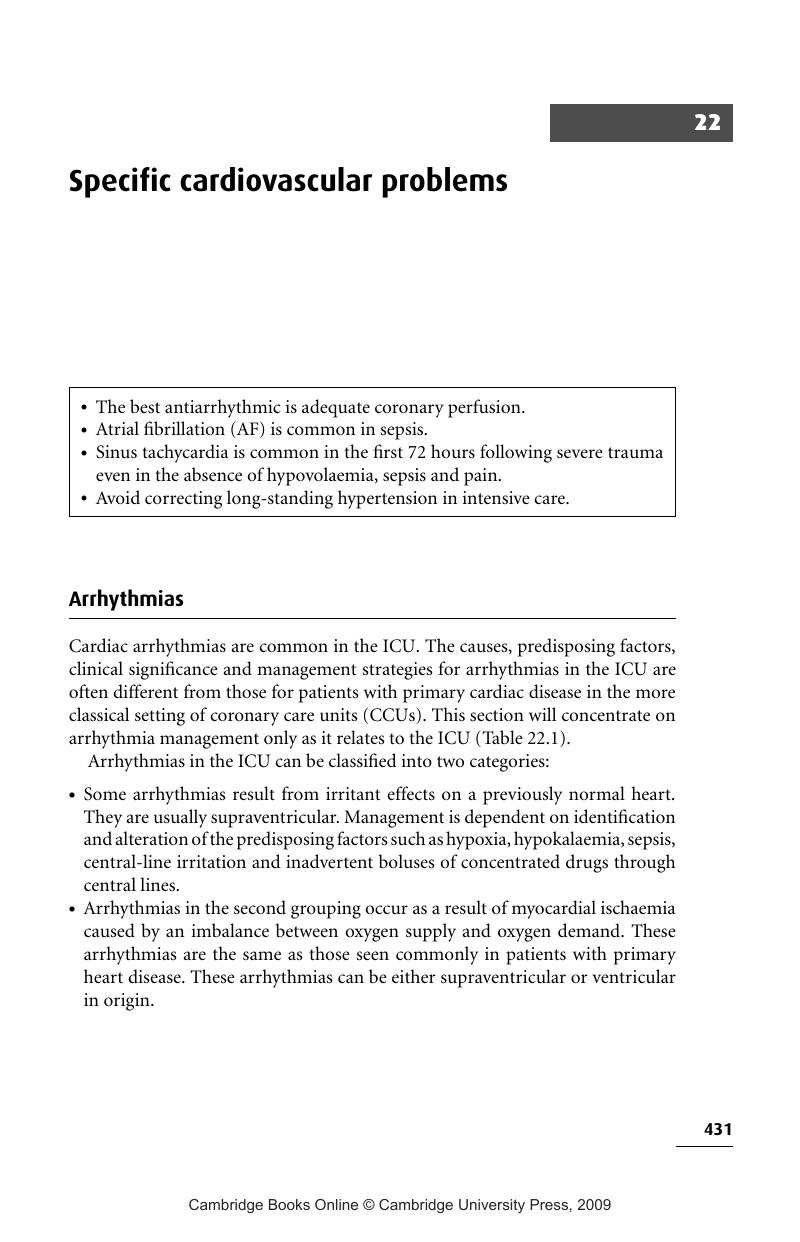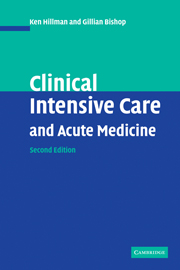Book contents
- Frontmatter
- Contents
- List of troubleshooting tips
- Preface to the first edition
- Preface to the second edition
- Acknowledgements
- 1 A systematic approach to caring for the seriously ill
- 2 Organisation of an intensive care unit
- 3 Routine care of the seriously ill
- 4 Fluid therapy and electrolytes
- 5 Nutrition and metabolism
- 6 Acid–base balance
- 7 Sedation, analgesia and muscle relaxants
- 8 Shock and anaphylaxis
- 9 Multiorgan failure
- 10 Cardiopulmonary resuscitation
- 11 Body temperature disorders
- 12 Transport of the seriously ill
- 13 Infection
- 14 Trauma
- 15 Poisoning
- 16 Acute respiratory failure
- 17 Interpretation of the portable chest film
- 18 Specific respiratory problems
- 19 Ventilatory techniques
- 20 Cardiorespiratory monitoring
- 21 Acute cardiovascular failure
- 22 Specific cardiovascular problems
- 23 Acute intracranial disasters
- 24 Specific intracranial problems
- 25 Critical care neurology
- 26 Acute renal failure
- 27 Critical care gastroenterology
- 28 Critical care haematology
- 29 Critical care endocrinology
- 30 Obstetric emergencies
- 31 Economics, outcome and ethics in intensive care
- Appendices
- Index
- References
22 - Specific cardiovascular problems
Published online by Cambridge University Press: 07 September 2009
- Frontmatter
- Contents
- List of troubleshooting tips
- Preface to the first edition
- Preface to the second edition
- Acknowledgements
- 1 A systematic approach to caring for the seriously ill
- 2 Organisation of an intensive care unit
- 3 Routine care of the seriously ill
- 4 Fluid therapy and electrolytes
- 5 Nutrition and metabolism
- 6 Acid–base balance
- 7 Sedation, analgesia and muscle relaxants
- 8 Shock and anaphylaxis
- 9 Multiorgan failure
- 10 Cardiopulmonary resuscitation
- 11 Body temperature disorders
- 12 Transport of the seriously ill
- 13 Infection
- 14 Trauma
- 15 Poisoning
- 16 Acute respiratory failure
- 17 Interpretation of the portable chest film
- 18 Specific respiratory problems
- 19 Ventilatory techniques
- 20 Cardiorespiratory monitoring
- 21 Acute cardiovascular failure
- 22 Specific cardiovascular problems
- 23 Acute intracranial disasters
- 24 Specific intracranial problems
- 25 Critical care neurology
- 26 Acute renal failure
- 27 Critical care gastroenterology
- 28 Critical care haematology
- 29 Critical care endocrinology
- 30 Obstetric emergencies
- 31 Economics, outcome and ethics in intensive care
- Appendices
- Index
- References
Summary

- Type
- Chapter
- Information
- Clinical Intensive Care and Acute Medicine , pp. 431 - 460Publisher: Cambridge University PressPrint publication year: 2004



